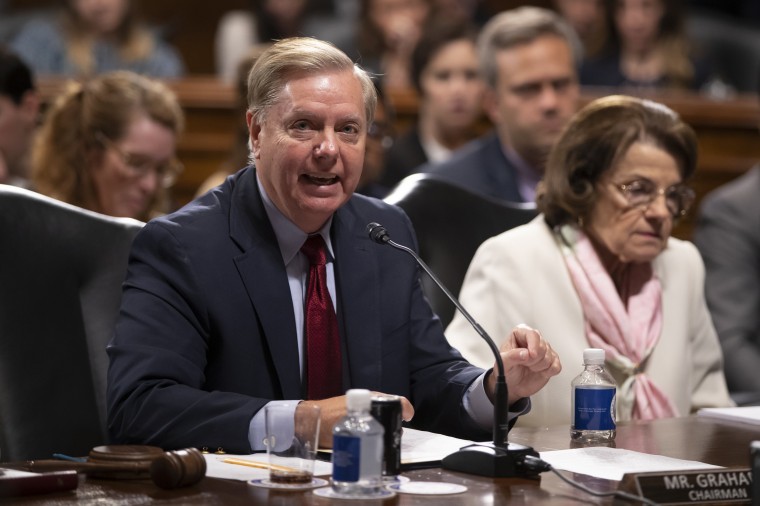The story broke in earnest late Monday, when Brad Raffensperger, Georgia's Republican secretary of state, alleged Sen. Lindsey Graham (R-S.C.) pressured him to discard legally cast ballots. The chairman of the Senate Judiciary Committee acknowledged the call, but the South Carolinian insisted that it was "ridiculous" to think he was guilty of improprieties.
As it turns out, there was a witness who shed some additional light on what transpired.
A top staffer for Georgia Secretary of State Brad Raffensperger said Tuesday that he was on the line when Sen. Lindsey Graham asked his boss whether he had the power to reject certain absentee ballots, a question Raffensperger interpreted as a suggestion to toss out legally cast votes.... Gabriel Sterling, who oversees voting systems in the state, told reporters Tuesday that he was on the call between his boss and the South Carolina senator, who, like Sterling, are Republicans.
Sterling told reporters, "I could see how Sen. Graham viewed it one way and Secretary Raffensperger viewed it one way. But, you know, our job in this state has to follow the law and follow the process as we continue to do." Sterling added that there's "no physical ability for this office to do" the sort of things Graham wanted to see done.
For his part, Raffensperger isn't backing down at all, telling multiple news outlets about his belief that Graham applied improper pressure to discard ballots for political reasons. In fact, he told the Wall Street Journal that there were two calls from Graham last week, not just one.
Facing serious allegations, Graham isn't just unconcerned, he's boasting about the scope of his efforts, telling reporters yesterday that he was also in communications with officials in Arizona and Nevada. "I am all over this," the South Carolinian said. "I am not backing off."
Asked why a senator from South Carolina was calling election officials in other states, Graham added, "Because the future of the country hangs in the balance."
Not to put too fine a point on this, but that answer is bonkers. It's the sort of response that could be used to justify practically any abuse or corrupt scheme: the senator is welcome to be disappointed after voters fired Donald Trump, but he can't interfere in vote-counts simply because he thinks it's important.
Walter Shaub, the former director of the Office of Government Ethics, wrote on Monday, "Why is the Chairman of the Senate Judiciary Committee calling Georgia's Secretary of State to discuss mechanics of an ongoing ballot count? Such a call would be implicitly coercive in the best case, even without Graham's alleged suggestion about throwing out lawful votes."
Or put another way, "the future of the country" relies on officials like Graham not doing exactly what he's been accused of doing.
The Atlantic's Ron Brownstein added, "The chair of the Senate Judiciary Committee is using the leverage of his position to pressure state officials into discarding legally cast ballots. Let that sink in. And think about what it portends for the Biden presidency."
Update: A Washington Post report also noted overnight that Graham has grown confused about the details of his own efforts: the senator "started off the day by saying he had talked with the secretaries of state in Arizona and Nevada.... A little later, Graham realized he had misspoken. He had actually talked to Arizona's governor and some other officials, he said, and he wasn't sure which officials from Nevada had briefed him about that state's 2020 election procedures. Finally, by midafternoon Tuesday, Graham realized he had never spoken to anyone from the Silver State about its 2020 vote."

